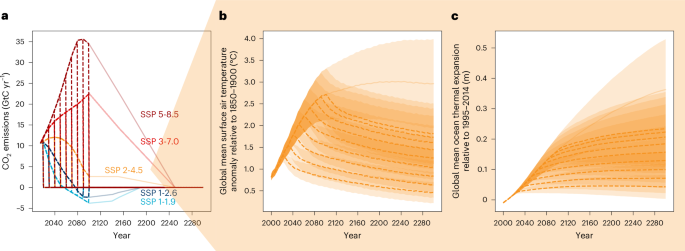The article summarizes significant research findings related to sea level rise and climate change, highlighting contributions from various studies and authors. Key points include:
-
Long-Term Projections: Studies like those from Nauels et al. focus on the long-term implications of emissions under the Paris Agreement, emphasizing the necessity for adaptation efforts to manage sea level changes.
-
Modeling Efforts: Projects such as ZECMIP and BRICK provide frameworks for understanding committed climate changes and predicting regional sea level variations, showcasing advancements in climate modeling techniques.
-
Ice Sheet Dynamics: Research by Kopp et al. and Edwards et al. delves into the physics and potential instability of the Antarctic and Greenland ice sheets, with significant implications for sea level changes by 2100 and beyond.
-
Socio-Economic Impact: Several studies explore the socio-economic repercussions of sea level rise, particularly for vulnerable regions like small island developing states (SIDS), emphasizing the link between climate justice and adaptive measures.
- Policy Implications: The findings reflect on the impact of current and future climate policies on sea level projections and the urgency for comprehensive strategies to mitigate risks associated with rising seas.
These themes underline the interconnectedness of climate science, socio-economic factors, and the necessity for effective policy responses to address the ongoing and future challenges posed by sea level rise.


